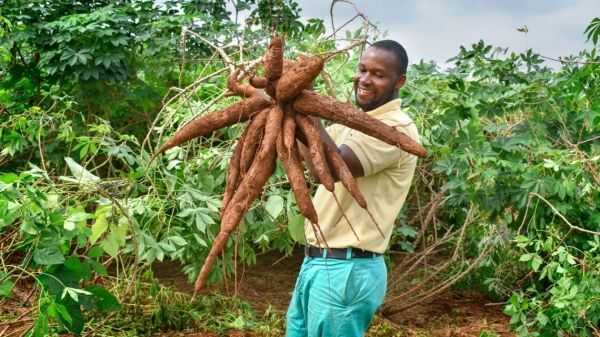Scientists in Cornell’s NextGen Cassava project have uncovered new details regarding cassava’s genetic architecture that may help breeders more easily pinpoint traits for one of Africa’s most vital crops.
Their findings are reported in a study published July 31 in Plant Molecular Biology.
The scientists analyzed large breeding populations measured extensively over successive years and stages of selection in multi-environment field trials in Nigeria. The genome-wide association analysis explored genomic regions most responsible for desirable traits in cassava, a food crop that provides the main source of calories for 500 million people across the globe.
The scientists found more than 40 quantitative trait loci associated with a total of 14 traits, responsible for characteristics such as disease responses, nutritional quality and yield. The traits were classified broadly into four categories – biotic stress, quality, plant agronomy and agro-morphology.
Continue reading at Cornell University
Image via Cornell University




